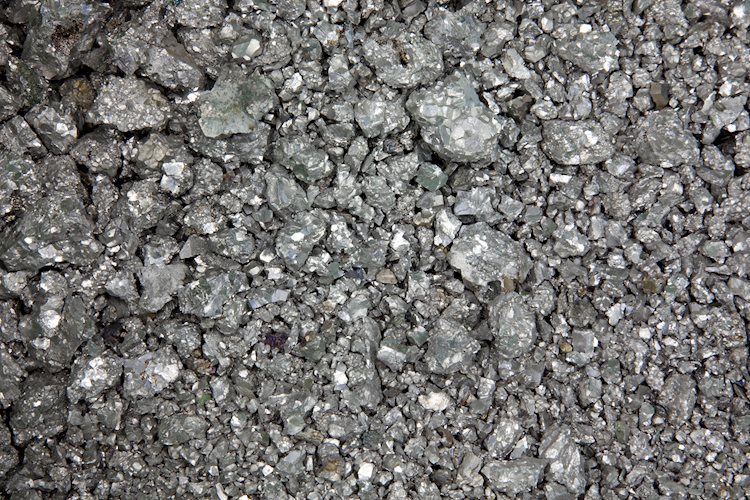Although vaccination against Covid-19 is advancing in several countries around the world, including Brazil, there is still a race of pharmaceutical laboratories to create a drug that prevents the serious evolution of the disease. This is because the vaccine does not prevent the transmission of Covid-19, although it can contain, in most cases, hospitalization and death due to the coronavirus.
The most recent drug to gain the attention of researchers was molnupiravir, a Merck Sharp & Dohme (MSD) drug, the first oral drug against Covid-19, with the possibility of extinguishing the infection in up to eight days with the ingestion of four capsules a day for five days. The UK approved its emergency use last week. The FDA, the US regulatory agency, is considering doing the same.
The World Health Organization (WHO) is also evaluating the inclusion of this drug in its list of recommended treatments for Covid-19.
While awaiting approval, MSD has authorized the manufacture of generics by other laboratories, which will be royalty-free, at least as long as the WHO maintains the coronavirus pandemic declaration.
In addition to molnupiravir, the World Health Organization has already approved the use of other medications for the treatment of Covid-19, especially in hospitalized people with severe or very serious conditions, all based on the criteria of disease severity: non-serious; severe or critical.
Remedies according to symptoms
According to the WHO, critical Covid-19, or the critical condition of Covid-19, is defined when the infected person has symptoms such as acute respiratory distress syndrome (ARDS) – which is when the lungs are already damaged enough that the patient has great difficulty breathing and needs mechanical ventilation – sepsis and septic shock.
In Covid-grave, the infected person has oxygen saturation lower than 90% in room air, signs of respiratory difficulty such as straining to breathe, in addition to pneumonia, lethargy and reduced level of consciousness and seizures. And Covid-19 is not severe, or the absence of any of the symptoms seen in Covid is critical or severe.
In its most recent report “Therapeutics and Covid-19: living guideline”, of October 23, WHO cites as drugs indicated to treat Covid: casirivimab and imdevimab; Tocilizumab or sarilumab; Remdesivir and systemic corticosteroids (understand more about each category below).
In Brazil, Fiocruz’s Institute of Pharmaceutical Technology is in advanced dialogue with MSD to try to enable a model of technical cooperation that involves drug testing in the country and access to the population, if the drug is approved by the National Health Surveillance Agency ( Anvisa). Tests with the drug, however, have not yet started in Brazil.
Drugs approved for emergency use by WHO
Casirivimabe e imdevimabe
Produced by pharmaceutical companies Regeneron and Roche, the drugs, whose cocktail is called Regen-Cov, can be used, as a matter of urgency, in Brazil from April 20th. The drugs are administered in a single dose and are indicated only for non-severe (mild and moderate) conditions of the disease, in adults of all ages or children aged 12 years and over who have contracted Covid-19. Application is directly into the vein (intravenous infusion).
According to WHO, the treatment is suggested for those at higher risk of hospitalization (elderly people, immunosuppressed and people with chronic diseases such as diabetes).
Casirivimab and imdevimab “are not authorized for use in hospitalized (hospitalized) patients due to Covid-19 or who need high-flow oxygen or mechanical ventilation in their treatments”, explains Anvisa. According to the agency, clinical studies indicate that the drug showed no benefit in hospitalized patients, and may even aggravate the condition.
Tocilizumabe ou sarilumabe
The World Health Organization began recommending the use of IL-6 receptor blockers (tocilizumab or sarilumab) on July 6, 2021 for patients with severe or critical Covid-19 infection.
The WHO recommendation emphasizes that these blockers should be recommended in place of corticosteroids, previously recommended in severe cases of Covid-19.
Remdesivir
The drug, which is not sold in pharmacies, is an injectable antiviral produced in powder for dilution. The Gilead laboratory, responsible for its development, points out that it is capable of preventing the virus from replicating in the body, reducing the infection process. WHO authorized its use on November 20, 2020. Remdesivir was granted registration by Anvisa on March 12 of this year.
In its latest review, WHO maintained the indication for use in hospitalized patients with Covid-19, regardless of disease severity.
As for Anvisa, in Brazil “the drug can only be administered to patients with pneumonia who need extra oxygen to help them breathe, but who are not under artificial ventilation.”
systemic corticosteroids
The recommendations for corticosteroids were first published as WHO life guidelines on 2 September 2020 and by the British Medical Journal on 5 September 2020.
According to WHO, the use of these medications is recommended only for patients with Covid-19 in serious condition. Infected people who have mild or moderate symptoms should not be given corticosteroids. However, with the inclusion of tocilizumab or sarilumab, corticosteroids are not the only alternative for similar cases.
“[Para casos graves de Covid-19] We recommend systemic corticosteroids rather than no corticosteroids at all,” described the report Therapeutics and Covid-19 Living Guideline, published September 23 by WHO.
For patients with mild or moderate Covid-19 infection (lack of criteria for severe or critical infection), WHO does not recommend use.
Drugs under study and approved by Anvisa
Banlanivimabe e etesevimab
Approved for emergency use by Anvisa on May 13 this year, banlanivimab and etesevimab are also administered to patients older than 12 years, with mild or moderate disease, who weigh more than 40 kg. Previous studies also point out that the combination of these two drugs should not be used in patients who are already hospitalized with Covid-19 or who require oxygen or mechanical ventilation.
“The infusion must be done within three days of the positive viral test and up to ten days after the onset of symptoms”, explains Anvisa. The drugs, which cannot be sold in a pharmacy, are similar to treatment with serum therapy.
Regkirona (regdanvimabe)
Also indicated for the treatment of indicated for the treatment of mild to moderate Covid-19, regdanvimab is a drug indicated for adult patients who do not need oxygen supplementation and who test positive for Covid-19. It must be administered within seven days of the onset of symptoms.
The health agency approved its emergency use on August 11 this year, but highlights that there are contraindications for those with a BMI equal to or less than 35; chronic kidney disease; diabetes; immunosuppressive illness or currently receiving immunosuppressive treatment; are 65 years of age or older; they are 55 years of age or older and have cardiovascular disease or hypertension or chronic pulmonary or respiratory disease.
Sotrovimabe
Approved for emergency use on September 8, the drug mimics the immune system’s ability to fight the virus and works to block the binding of the virus that connects it to human cells. Sotrovimab is indicated for the treatment of mild to moderate Covid-19 in adult and adolescent patients aged 12 years and older who weigh at least 40 kg.
The treatment is indicated only for those who are at risk of developing a serious condition of the disease and should not be given to hospitalized patients, who need oxygen therapy or who need an increase in the basal oxygen flow rate. The drug is for use restricted to hospitals and cannot be sold in pharmacies.
baricitinibe
The last drug approved by Anvisa for testing, baricitinib acts in the process of formation and development of blood cells, inflammation and defense of the body.
Anvisa says the drug is indicated for hospitalized adult patients who need oxygen through a mask or nasal catheter, or who need high oxygen flow or non-invasive ventilation.
Tofacitinibe
The application for authorization for emergency use of tofacitinib citrate was presented by Pfizer to Anvisa on July 28, but has not yet been included in the list of drugs for testing. The agency says that the deadline for reply is 30 days, which has already been exceeded, but that it can be extended when the laboratory needs to answer technical questions asked by the agency.
Under study but not presented to Anvisa
The USP researchers have identified a group of seven other drugs out of a few thousand that have been tested and that have been shown to be “potential inhibitors of the major SARS-CoV-2 protease,” basically meaning that they might be able to help contain coronavirus infections.
Hexassaccharide derived from acarbose
Natural product used to reduce the level of glucose in the blood by slowing down the digestion of carbohydrates.
Angiotensinamida
Vasoconstrictor used to increase blood pressure in patients with severe hypotension.
Dihydrostreptomycin
Antibiotic widely used in veterinary treatment for cases of pneumonia and other diseases related to contamination by some bacteria.
Enviomycin and viomycin
They are antibiotics used to treat tuberculosis.
Fenoterol
Found under the name Berotec, used to treat diseases known as chronic bronchitis, bronchial asthma, pneumonia, pulmonary emphysema; pulmonary disease and tuberculosis.
Naratriptano
Analgesic used to treat migraine.
Despite the studies, none of these drugs had been requested for release for testing by Anvisa for the treatment of Covid-19.
*With information from Raphael Coraccini.
Reference: CNN Brasil






